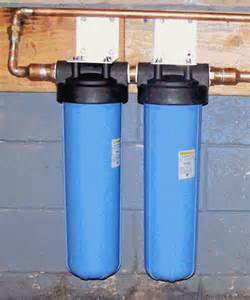|
Why You Should Install a Whole House Water Filtration System By Pierre Mouchette | Real Property Experts LLC What does a water filtration system do?
A water filtration system will prevent problems in the water supply. These problems can fall into several categories, with different solutions:
The USCG Water Science School has a chart on contaminants found in groundwater on their website that may have additional helpful information. To determine if and what type of filtration system you need, you must obtain a water analysis. If you have:
Filters for the appropriate problems are determined as stated above by the issues. Once you know the issues to address, you can decide on the filtration system. There are several different methods a water filtration system can use, and it may utilize more than one if necessary.
What is the difference between water softening and water filtration? Water Softeners remove the hardness (minerals), whereas water filters remove a broad range of contaminants. The two systems can be combined. What is a whole house water filtration system? A system installed at the entry of the water into the house. This system will allow you to turn on a fixture or appliance in your home and get filtered water. The installation will require turning off the water service main shutoff valve, cutting the pipe, installing the filtration system, and a bypass with a check valve. Since this system will interrupt your water usage activities, you should schedule this when you can go without water for a few hours. We recommend that a professional perform this installation. Note: All filters have a limited life and must be replaced periodically. Keep this in mind when selecting the water filtration system and for maintenance. Special considerations for selecting your system are
Comments are closed.
|
Archives
May 2024
|
